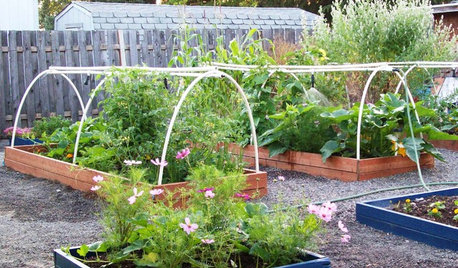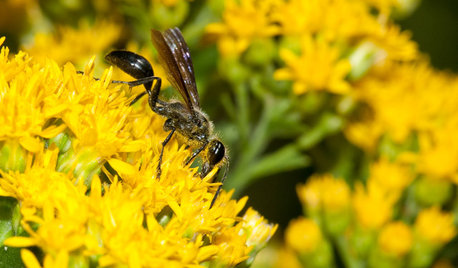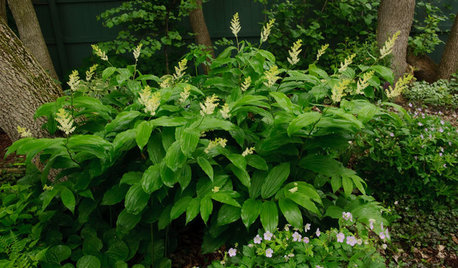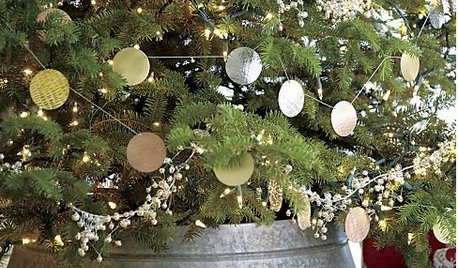An alternative to hand pollination
guile
14 years ago
Related Stories

BENEFICIAL INSECTSAttract Pollinators for a Productive Edible Garden
You can lure bees, butterflies and birds into your yard with the right flowers and nesting spots
Full Story
GARDENING GUIDESMeet the Grass-Carrying Wasp, a Gentle Pollinator of Summer Flowers
These fascinating insects nest in wood cavities and hollow plant stems
Full Story
GARDENING GUIDESGarden-Friendly Native Alternatives to Overplanted Exotics
There are lots of gorgeous, wildlife-friendly native plants ready to make an appearance in your garden
Full Story
MOST POPULARMeet a Lawn Alternative That Works Wonders
Carex can replace turfgrass in any spot, is low maintenance and adjusts easily. Add its good looks and you’ve got a ground cover winner
Full Story
PRODUCT PICKSGuest Picks: Cool Alternatives to Christmas Tree Skirts
Give your tree a fashionable new outfit for Christmas this year with one of these collars, cuffs, baskets or buckets
Full Story
KITCHEN COUNTERTOPSKitchen Countertop Materials: 5 More Great Alternatives to Granite
Get a delightfully different look for your kitchen counters with lesser-known materials for a wide range of budgets
Full Story
LANDSCAPE DESIGN7 Low-Maintenance Lawn Alternatives
Turf isn't the only ground cover in town. Get a lush no-grass lawn with clover, moss and other easy-care plants
Full Story
DECORATING GUIDESBean There, Done That: Coffee Table Alternatives
Get creative with these ideas for salvaged and DIY pieces that will get people talking
Full Story
KITCHEN DESIGN11 Great Alternatives to Glass-Front Cabinets
You may just break up with glass when you see these equally decorative but less fragile cabinet options
Full Story
DECORATING GUIDES8 Alternative Ways to Display Art
Create an Instant Gallery Without Hammer and Nails
Full Story





rockguy
Related Professionals
Windham Landscape Architects & Landscape Designers · Wakefield Landscape Contractors · Avocado Heights Landscape Contractors · Azalea Park Landscape Contractors · Bellefontaine Neighbors Landscape Contractors · Bergenfield Landscape Contractors · Cedar Hill Landscape Contractors · Chattanooga Landscape Contractors · Laguna Hills Landscape Contractors · Lake Worth Landscape Contractors · Longview Landscape Contractors · Woodburn Landscape Contractors · Selma Landscape Contractors · Bixby Roofing & Gutters · West Orange Roofing & Gutters